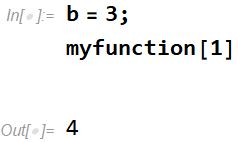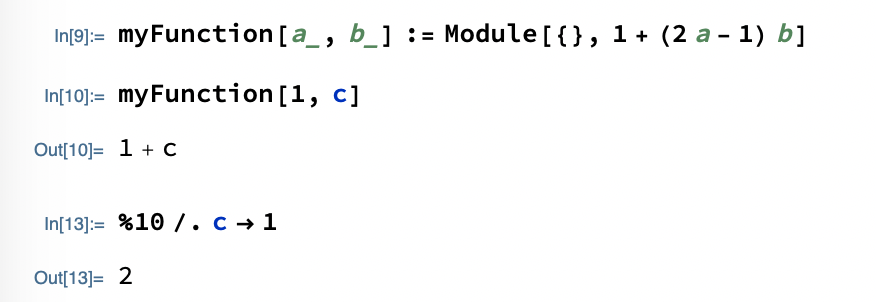I'm not sure if this problem has been asked before as I don't know the keyword to search for it.
I have a function where return result contains variable b (just for illustration).
myfunction[a_] := Module[{},
1 + (2 a - 1) b ]
I want it to always return an expression with b unevaluated and only evaluate it when I do some replacement.
This one works as b is not used anywhere (not being assigned some value).
However, now assume that b is assigned somewhere then the function below is evalued with that b.
And in the result below with replacment the result is 4 instead of 2 as what I want.






blocal then I cannot returnbbut something like$1000and it's hard to replace for value later. ut $\endgroup$